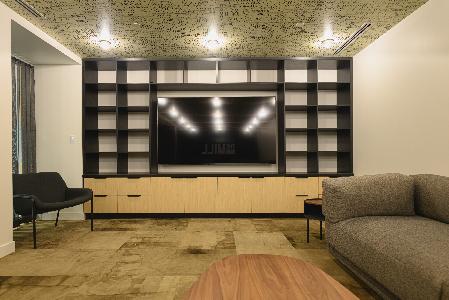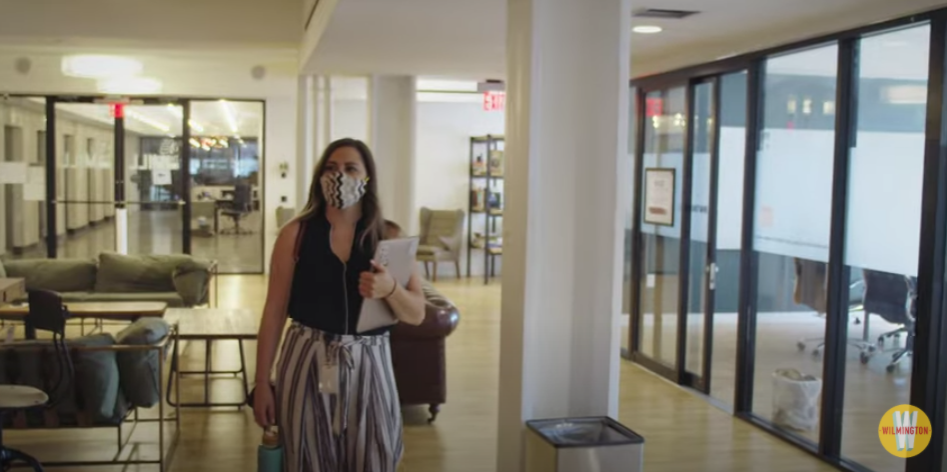
This editorial article is a part of Lessons in Resilience Month of Technical.ly's editorial calendar.
Within weeks of the COVID-19 lockdown’s start in March 2020, and long before anyone imagined that the pandemic would span more than two years, just about every business media outlet was asking some variation of the question: Will COVID-19 be the death of coworking spaces?
Some of it had a hint of schadenfreude, especially when it came to the infamously cult-like WeWork, which was crashing and burning before the first known case of COVID-19 hit US shores. Those who preferred to think of coworking spaces as a fad may have seen the lockdown as the real beginning of the end to the model. It certainly wasn’t a given that a business hinging on contact with strangers would survive social distancing.
But as we head into 2022, it’s become clear that the dynamics of pandemic life are actually helping coworking spaces more than hurting them in many ways. After all, coworking spaces offer the flexibility, low commitment and style that most traditional office spaces don’t. Those features might just mean they’re more resilient than even the age-old company HQ.
When the pandemic hit in March 2020, The Mill — one of several coworking spaces in Wilmington, including CSC Station and WIN Factory — had a waiting list. It had added an additional floor inside the old Nemours Building and had just opened The Mill Concord in Concord Plaza in the North Wilmington suburbs.
Technically, The Mill never closed, although it was virtually empty during the lockdown period when people across the country were advised to work from home if they could. Mill founder Robert Herrera, operations director Rebecca Parsons and community manager Andrew Larason updated the common spaces with plexiglass and the conference rooms to accommodate smaller groups. They painted and worked on reno projects at Concord.
They offered members mail delivery service from their office mailboxes, but if members wanted to come in, they were welcome to. Some members had tiny, glass-enclosed offices that were ideal for the circumstances, while some came and used the suddenly quiet common space.
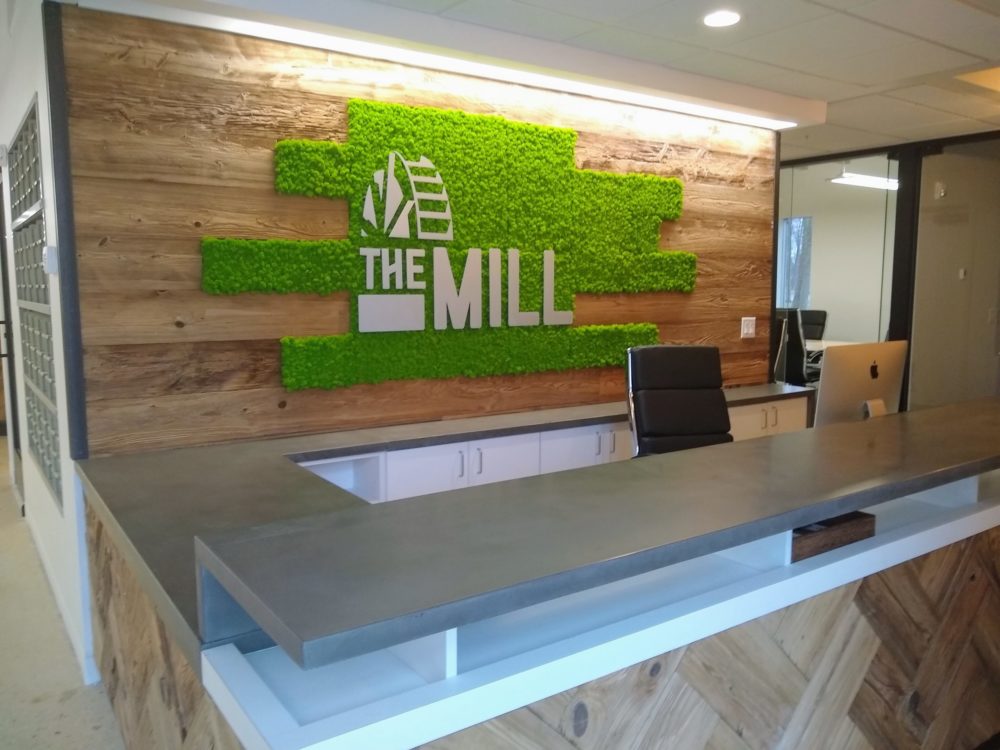
The Mill Concord. (Photo by Holly Quinn)
Ed Weirauch, a career coach and public relations person, was one of the Mill’s community members who never stopped coming in.
“[The Mill] is really a great thing for me because I’m extremely extroverted,” Weirauch told Technical.ly. “It’s tough for me to be home by myself, or even when there’s somebody in the house.”
As an Airbnb host, renting out temporary living space in his home in the city, there often is somebody else in the house — perhaps a medical student he doesn’t want to disturb — adding more reason to need to get out for work.
“Yes, it was quieter,” he said about the drop off in community-area members, a Mill demographic that once packed the rustic communal desk and the surrounding couches. “That was the most glaring change. I used to think, why would people not come here? Because we now have this plexiglass.”
One perk that came with the emptying of some of the Mill offices in 2020 was that they were made available for free to members for an hour at a time. It’s not a perk that is likely to endure, as the offices are filling up again, nearly to pre-pandemic level, according to Parsons.
One of the new office tenants is Tanya Williamson, relationship coach, consultant and founder of Married to the Ring, an expanding relationship training platform. She had run her business previously out of her home, but needed a place for meetings with clients and small events, so she moved into her small private office at The Mill in 2021.
“As soon as I walked in the door for a tour, I said, this is exactly what I want,” Williamson said.
Having her own office helps her to be taken seriously as a business, she said, even as remote work has normalized kitchen table Zoom calls. As her business pivots to add a nonprofit arm, having a place to meet people and form collaborations has become more and more vital, even as Married to the Ring’s digital platform becomes more and more central to her business.
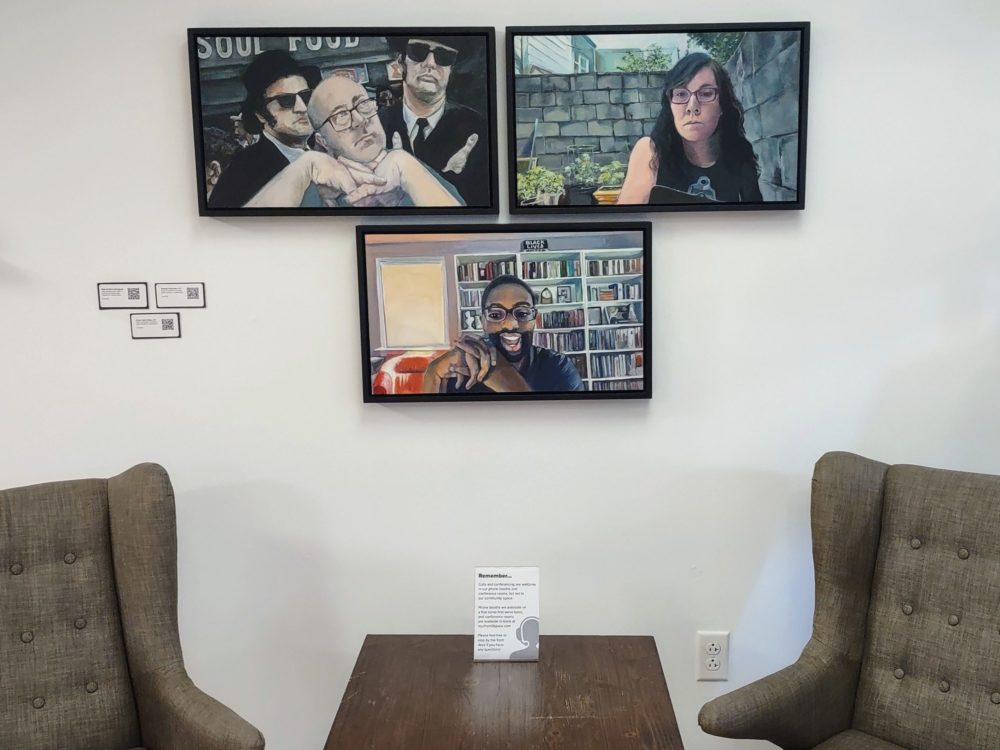
Zoom portraits by artist Nanci Hersh hanging at The Mill. (Photo by Holly Quinn)
Williamson also sees coworking spaces as important to the economy, as people leave corporate America to become entrepreneurs, like she did.
“I gave my [former] company all of me,” she said. “But when I was let go, I was just another number. I felt like a part of my identity was gone.”
The social aspect of coworking spaces can make branching out beyond your own bubble easier. Even with fewer people on site in general, it’s still a place where members can collaborate and grow.
In between the community membership and office space is the designated desk, which is often what people think of when they think coworking spaces.
Aman Sharma, a litigation attorney and first lieutenant in the U.S. Army/Delaware National Guard, gave up a traditional office in downtown Wilmington after the pandemic hit, when his in-office staff of three moved to work-at-home. The arrangement has successfully stuck.
“It works out well with team members with small kids,” Sharma said. So, there was no need for an expensive office. But as an attorney, he is required to have a business address. “You can’t just work [in the legal field] at home. There has to be a separation.”
For Sharma, the mailbox feature is another plus. Just a couple of weeks ago, he returned from active duty, and had the peace of mind of knowing that all of his mail would be there when he returned — something you can’t be sure about with a home office or even a traditional office.
“I just think it’s so advantageous to be in this spot for so many reasons,” Weirauch said. “It’s bright. It’s a cool space. And, I mean, networking is so important. You don’t know who you’re going to meet. Especially in small town like Wilmington, all that can happen quite naturally here.”
Individual plans may certainly change as the pandemic progresses, especially as new variants emerge. But for now, it looks like coworking is a trend with staying power.
Join the conversation!
Find news, events, jobs and people who share your interests on Technical.ly's open community Slack

Delaware daily roundup: Over 4,000 Black-owned businesses uncovered; Dover makes rising cities list; a push for online sports betting

Delaware daily roundup: Ladybug Fest illuminates small biz; Hahnemann Hospital's biotech future; intl. politics and a Middletown project
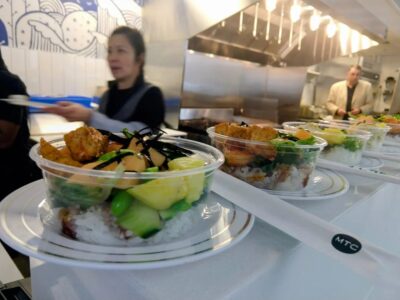
Delaware daily roundup: DE in DC for 'Communities in Action'; diversifying the coffee supply chain; Invista's future
